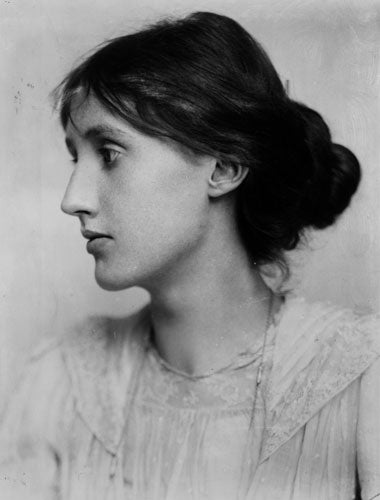Showing her funny side: British Library to release Virginia Woolf's last unpublished work

Your support helps us to tell the story
From reproductive rights to climate change to Big Tech, The Independent is on the ground when the story is developing. Whether it's investigating the financials of Elon Musk's pro-Trump PAC or producing our latest documentary, 'The A Word', which shines a light on the American women fighting for reproductive rights, we know how important it is to parse out the facts from the messaging.
At such a critical moment in US history, we need reporters on the ground. Your donation allows us to keep sending journalists to speak to both sides of the story.
The Independent is trusted by Americans across the entire political spectrum. And unlike many other quality news outlets, we choose not to lock Americans out of our reporting and analysis with paywalls. We believe quality journalism should be available to everyone, paid for by those who can afford it.
Your support makes all the difference.The British Library is to show the mischievous and comic side to Virginia Woolf, with the release of her last unpublished work later this year.
The 90-year old writings dubbed The Charleston Bulletin Supplements will be published for the first time in June.
She wrote for her nephews Quentin and Julian Bell - the children of her sister Vanessa Bell - who had set up a family newspaper The Charleston Bulletin. “It seemed stupid to have a real author so close at hand and not have her contribute,” Quentin said.
The pieces made fun of family members including the children’s father Clive, household servants such as the cook, whose porridge was roundly criticised, and members of the Bloomsbury Group.
The author wrote or dictated the supplements for the daily newspaper between 1923 and 1927, while Quentin illustrated the pieces.
A spokeswoman for the British Library said: “Woolf’s humour and mischievous nature are brought to the fore in this new publication by one of the 20th century’s greatest authors.” The British Library took possession of the documents in 2003.
This comes as the BL revealed it had taken control of Sir Alec Guinness’ archive. The acquisition complements its existing archives of the other three great 20th century knighted actor: Sir Laurence Olivier, Sir Ralph Richardson and Sir John Gielgud.
Sir Alec’s archive includes over 100 volumes of his diaries from 1963 until his death in 2000, as well as over 900 letters.
Zoe Wilcox, curator of theatrical manuscripts at the British Library, said curating the archive was about to get underway, and it will be made available to the public next year.
Ms Wilcox has looked through the material and said what immediately stood out was “quite how superstitious he was, and his belief in the supernatural.
In his letters and diaries he recounts episodes including feeling the spirits of his dead friends, as well as foreseeing his own death while a sailor in the Second World War. While he survived the war, his ship sank the day after his premonition.
His memoirs tell the story of seeing James Dean, the star of Rebel without a Cause, shortly after he bought a new car, and predicting his death within the week. Dean was killed in a car crash seven days later.
The actor became a Catholic in 1956 and remained devout church-goers for the rest of their lives. “His interest in the lives of the saints spilled over into the supernatural,” Ms Wilcox said. “It’s a side many fans of his work would not know about.”
In May, the BL is also putting on an exhibition about propaganda, including leaflets dropped by the Allies on Europe during World War Two.
Join our commenting forum
Join thought-provoking conversations, follow other Independent readers and see their replies
Comments